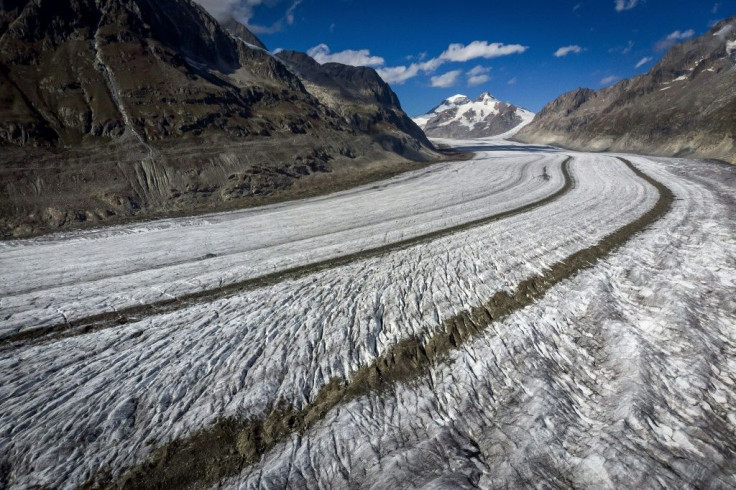European Heat Wave Shuts Down Ski Resorts, Cancels Winter Sports In The Alps

January in the French Alps is known for its alpine skiing, cozy cabins, and romantic winter views, but not this year. A heat wave crossing Europe has melted the snow off the famous mountain range with conditions resembling late spring instead of the depths of winter.
Resort towns that rely on winter tourism for their economy are struggling to pivot, and climate experts warn that this could be a preview of what to expect in many winters to come.
France 24 reported that only resorts high in the French alps can maintain their snow and open ski hills. As a result, the Tignes resort announced that the fourth stage of the E-Trophée Andros, a French national skiing competition to be held at the resort, was canceled.
"The warm spell of the last few weeks and the weather forecast for the next few days with the absence of severe cold as well as the return of abundant snow next week is not favorable to the preparation of the circuit of Tignes Les Brévières," the press release states.
On the border between Switzerland and France, the Torgon-Les Portes du Soleil Ski Resort shows panorama photos of its slopes between Dec. 29 and Friday, with the snowscape going from mainly covering the ground to showing more grass visible than snow. Most resort ski lifts and runs are closed even at the highest altitudes. On Friday, temperatures at the resort's highest point of 1900 m reached 39.2 °F.
The BBC reports some ski resorts have opened their summer hiking and biking trails, as there is not enough water to support snow-making operations and the weather is continuously above freezing. Ski areas across the Alps north to the Baltic sea have reported their highest temperatures in January in history.
On Jan 7 and 8, Adelboden Lenk Ski Resort is set to host the World Ski Championships for the giant slalom and slalom competitions. Temperatures on Friday in Adelboden reached almost 45°F and are predicted to be 46°F on Saturday. This season Adelboden has seen highs reach a record-breaking 68°F, according to the BBC.
Scientists and climate experts have warned that warm winter weather will become the norm as temperatures change and precipitation comes down in rain instead of snow. The Research Center for Alpine Ecosystems has found that over the 20th century, temperatures increased an average of 2°C in the European Alps, with the most notable change happening in France, and predict that by 2100 temperatures will increase in the French Alps between 2°C to 5°C.
In November, UNESCO released a report stating one-third of glaciers at UNESCO World Heritage Sites would melt by 2050, including in the Alps. As the glacial ice sheets melt, snow will be more difficult to stick and keep temperatures cool. Communities relying on winter conditions and glaciers for tourism and economic revenue are likely to suffer as the snow melts.
CNN reports that ski resorts are making the difficult decision to store their resources and wait for snow than continue trying to make current conditions work. Some ski resorts have closed permanently as there is insufficient consistent snow to keep them profitable.
"There'll be skiing for a long time yet," alpine meteorologist Fraser Wilkin told CNN. "But we will see our resorts under more and more pressure. And we will see more people need to go higher, and that will drive up prices."
© Copyright IBTimes 2024. All rights reserved.





















